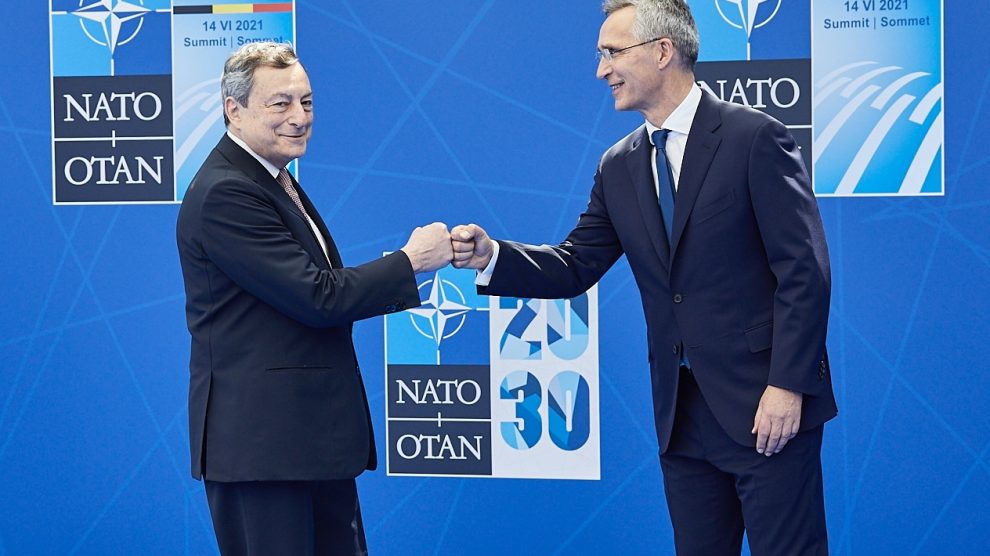With the conclusion of the G7 Summit in Germany, PM Draghi and the other leaders are now headed to Madrid to set up NATO’s strategic future. Italian priorities on the table are clear: Ukraine of course, but also North Africa and the Mediterranean region, immigration and refugees.
A historic summit. The meeting in the Spanish capital represent an important starter moment for NATO, with challenges and opportunities deriving primarily from Russia’s war in Ukraine, which the G7 has pledged to help “for as long as it takes” — a similar pledge is expected to come out of the NATO summit.
- The Alliance’s Secretary- General Jens Stoltenberg said the organization will unveil a “transformative” plan, the largest overhaul of its defense and deterrence since the end of the Cold War, to guide NATO in an area of strategic competition.
- Mr Stoltenberg expects “the Summit will make clear that allies consider Russia as the most significant and direct threat to our security.”
- A breakthrough on Sweden and Finland NATO membership — opposed for now by Turkey — “looks imminent,” as reported by geopolitical expert Ian Bremmer, thanks to “strong diplomacy on all sides, an important win for Europe, NATO and the transatlantic relationship.”
Italy’s role and strategic guidance. Italy’s is a key contributor to NATO and is setting up a clear vision for its future, with more of a focus on the Southern Europe’s flank and the Mediterranean, and less on the Baltics and East Europe.
- Issues that are priorities in Mr Draghi’s foreign and security policy, like immigration flows, terrorism, instability in the Mediterranean, as well as in Northern and Subsaharan Africa will likely be included in NATO’s new “Strategic Concept,” the roadmap to guide the Alliance towards its next phase.
- With the US and Spain, the host country of the Summit, Italy shares priorities like terrorism, climate change, and mass migration. With Greece, the attention is particularly on refugee policy and maritime security in the Med.
- Italy has pledge to fulfill by 2028 the 2% of the country’s GDP in military spending.
- The country is also a key contributor to NATO, participating in eight missions with both military personnel and resources. In some cases leading NATO forces, like in Iraq and Bulgaria.
NATO’s Southern flank. “Italy has always been a key player” in the area, former NATO Secretary-General George Robertson and ex UK Defense Minister in the Tony Blair cabinet, told Decode39.
- “The Mediterranean represents an open door to several threats to NATO’s security,” Mr Robertson said, pointing out that “Italy is the strategic guardian of said door.”
What about China? This is the first time that the NATO leaders have invited two Pacific nations — Japan and South Korea — to attend, showing an increasing attention around the threats coming from China, including in terms of cybersecurity and the situation in the East and South China Seas.





